Nội Dung Chính
(Page 80)
IV. SPEAKING
Vocational training vs. academic study
1. Work in pairs. Complete the table below. Use the suggested ideas and/or your own ideas.
Suggested ideas:
• develop critical thinking skills
• develop research skills
• provide shorter duration of study
• develop practical skills
| Benefits of vocational training | Benefits of academic study |
| • cost less • __________ • __________ | • can earn more • __________ • __________ |
2. Complete the conversation with the sentences in the box. Then practise it in pairs.
A. It's the cost. Vocational training is much cheaper than university education.
B. I couldn't agree more. So, we've decided on the three main benefits: more practical, shorter, and cheaper.
C. Great! We're now ready to report to the class.
D. Now, let's think about one more benefit.
Nam: Let's decide on the three main benefits of vocational training. First, I think it will help students develop practical skills.
Lan: I agree. Vocational courses are more practical than university courses.
Nam: What do you think is the second benefit?
Lan: I think it's the short duration of study. Degree programmes at university usually go on for at least three years while vocational courses can last less than two years.
Nam: (1) ____________________
Lan: (2) ____________________
Nam: (3) ____________________
Lan: (4) ____________________
(Page 81)
Tips
We can end a conversation or discussion by:
• summarising it, e.g. We've decided.../We've agreed to.../We've covered everything/all points.
• concluding it, e.g. Bye./Great, we're now ready for.../That's all we have today./It was a very useful discussion/meeting.
3. Work in pairs. Talk about the benefits of academic study. Use the ideas in 1, the model in 2, and the tips above to help you.
4. Work in groups. Discuss what kind of students/learners each option will be more suitable for. Give reasons for your decision. Report to the whole class.
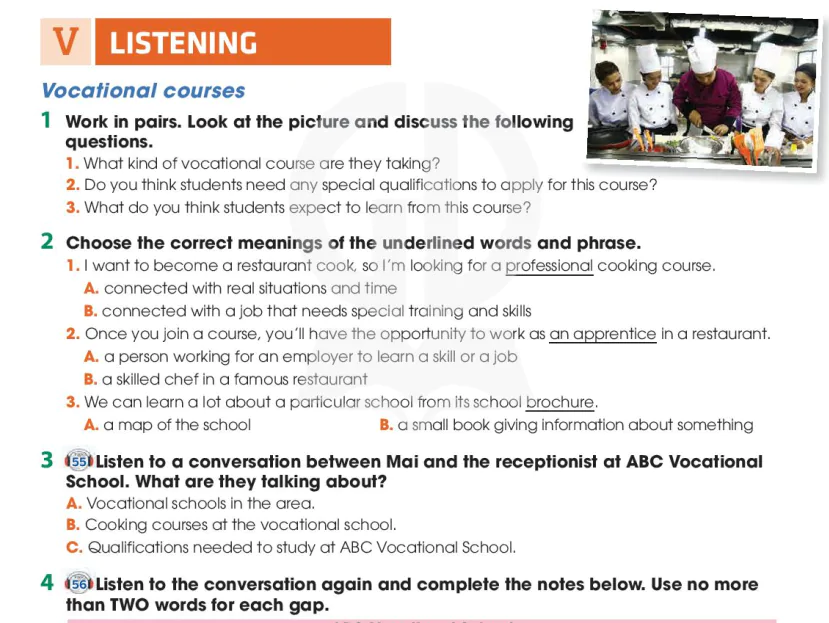
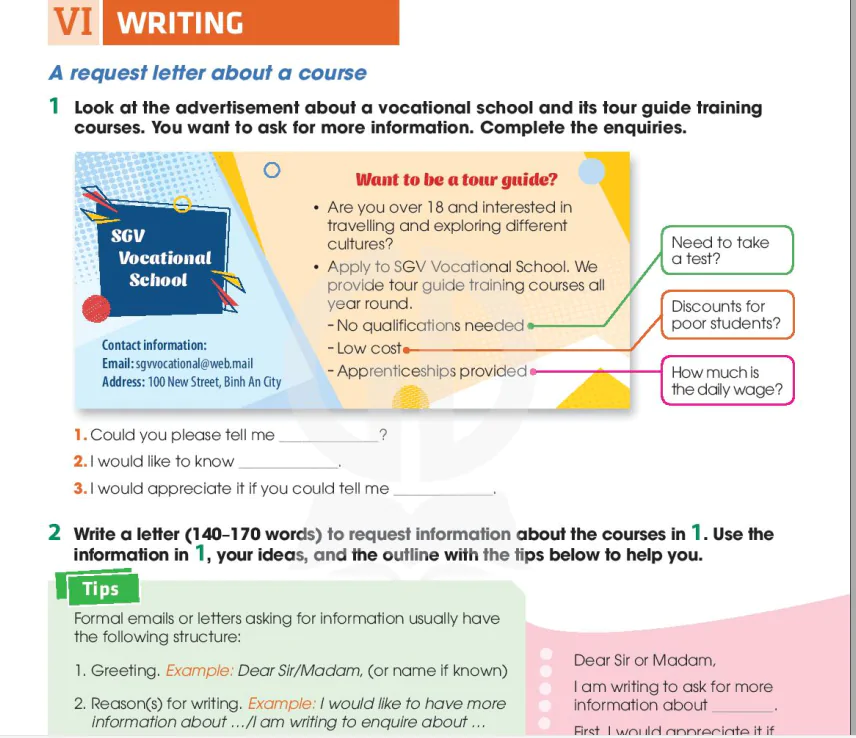
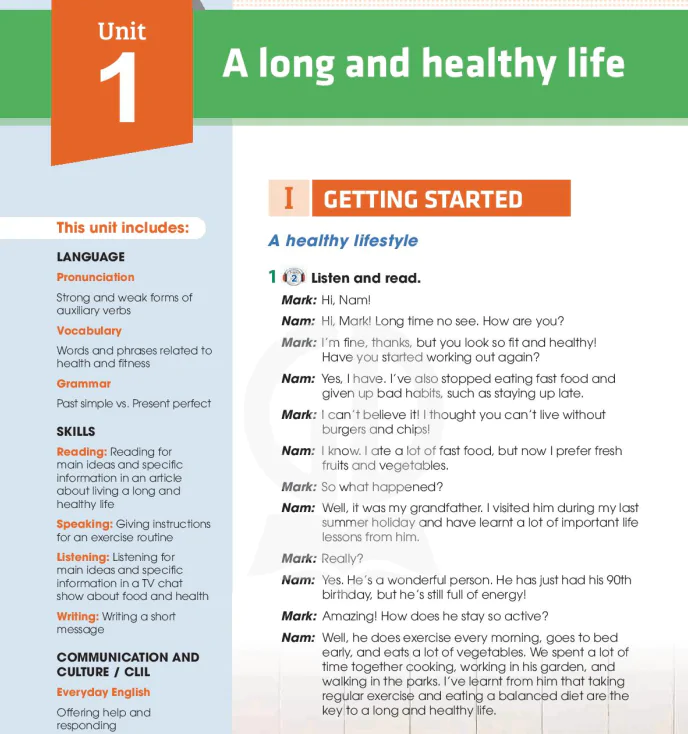
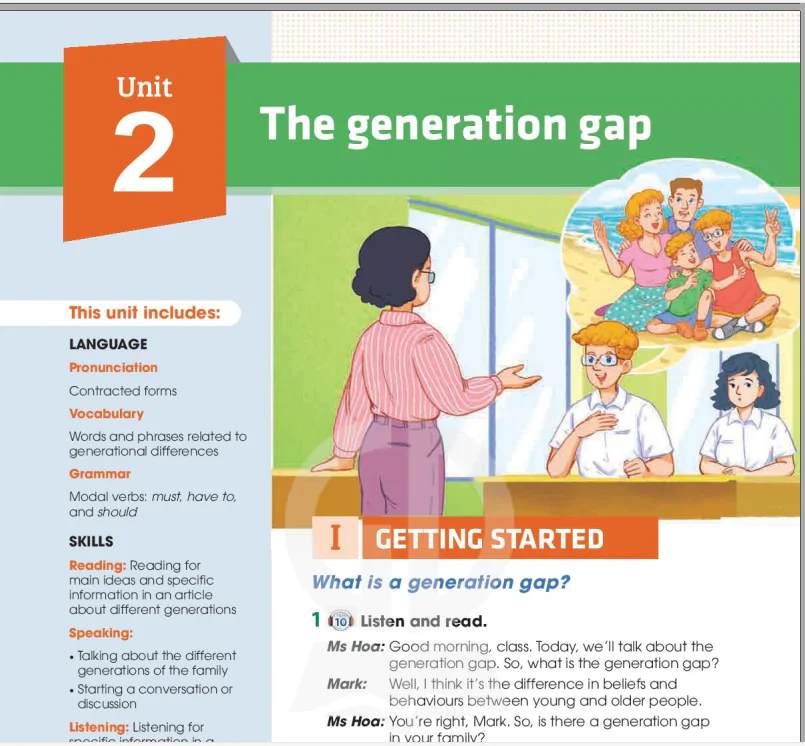
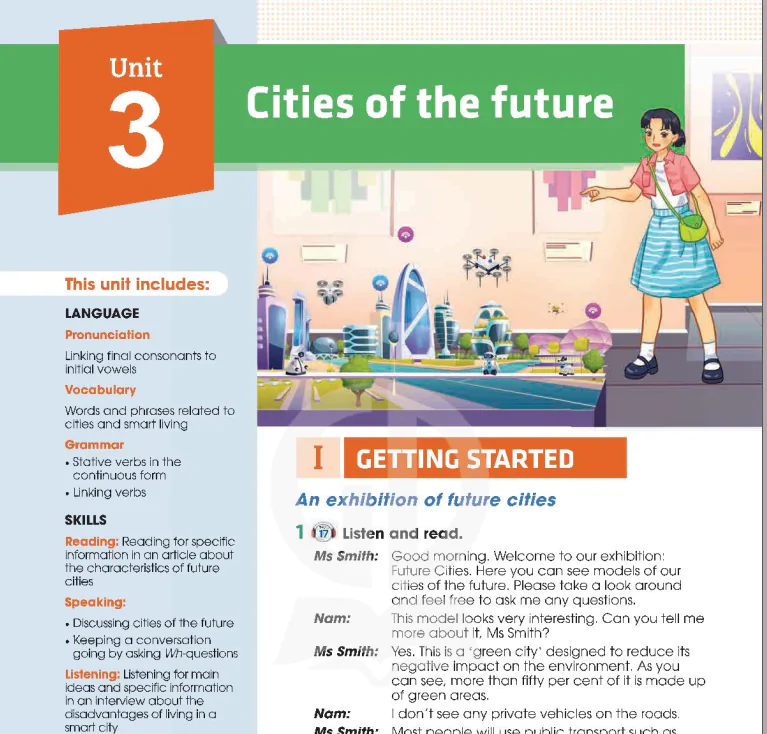
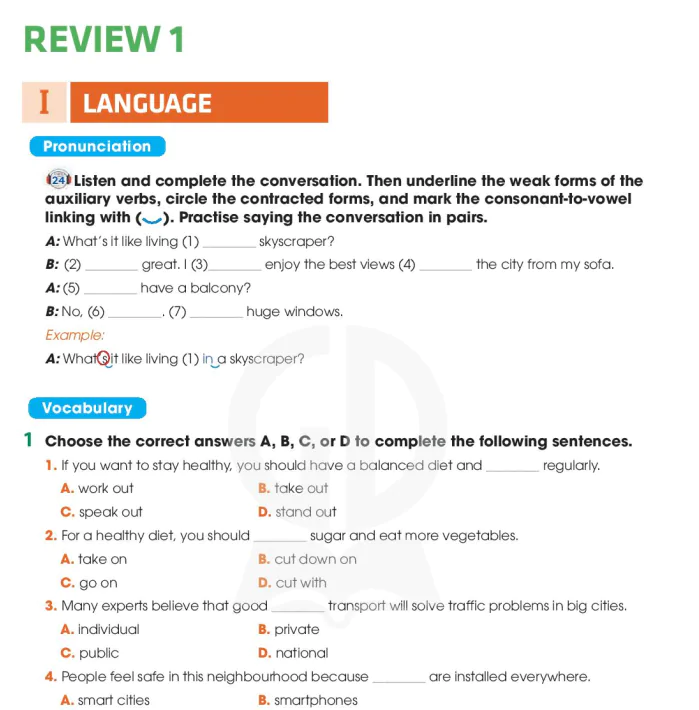
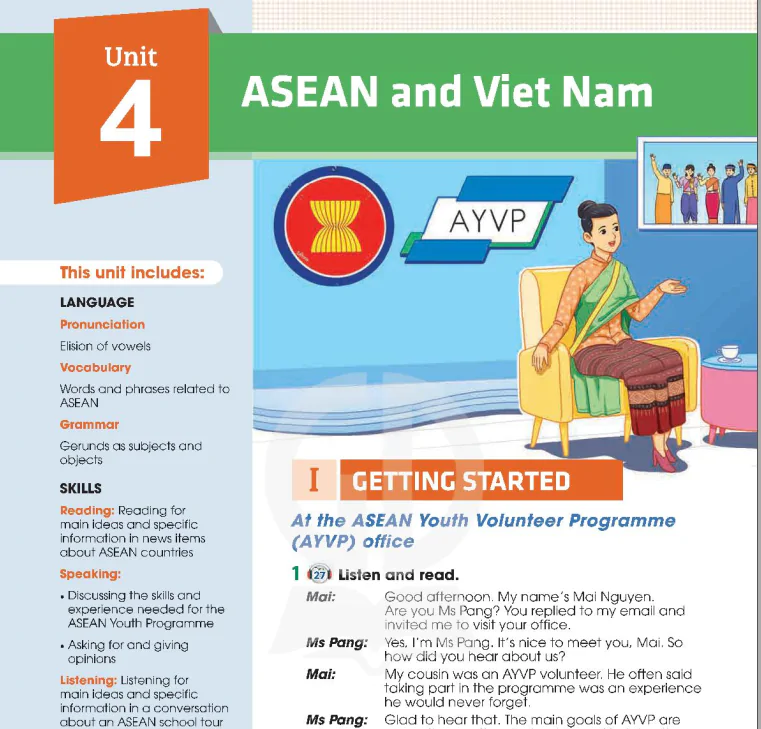
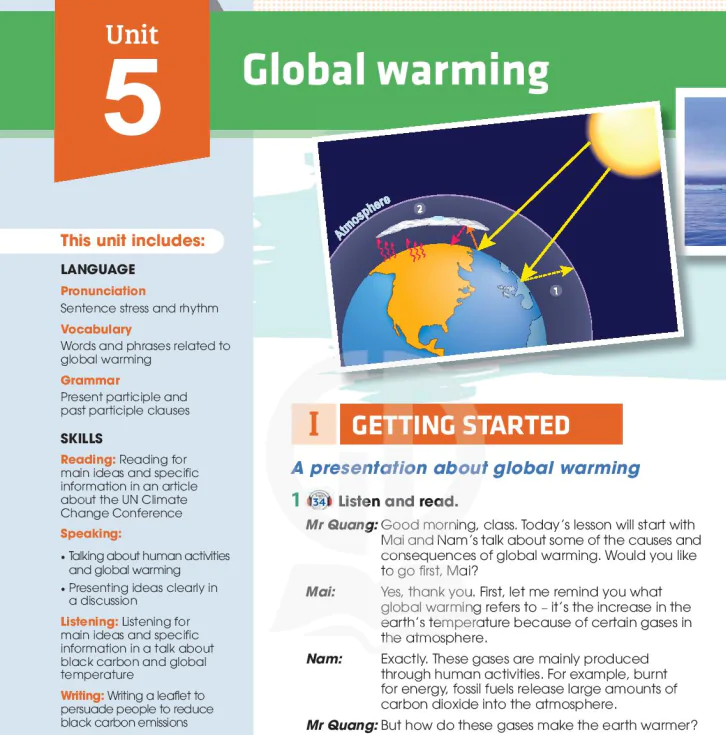
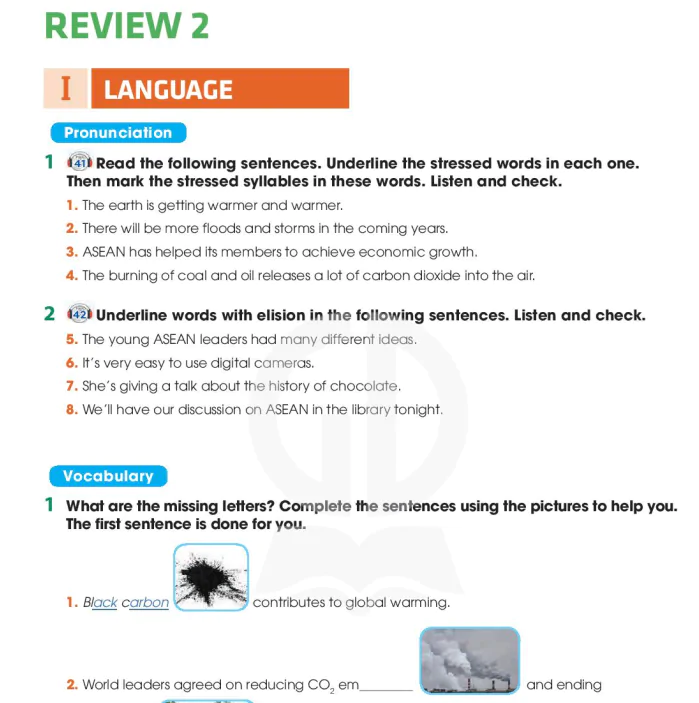
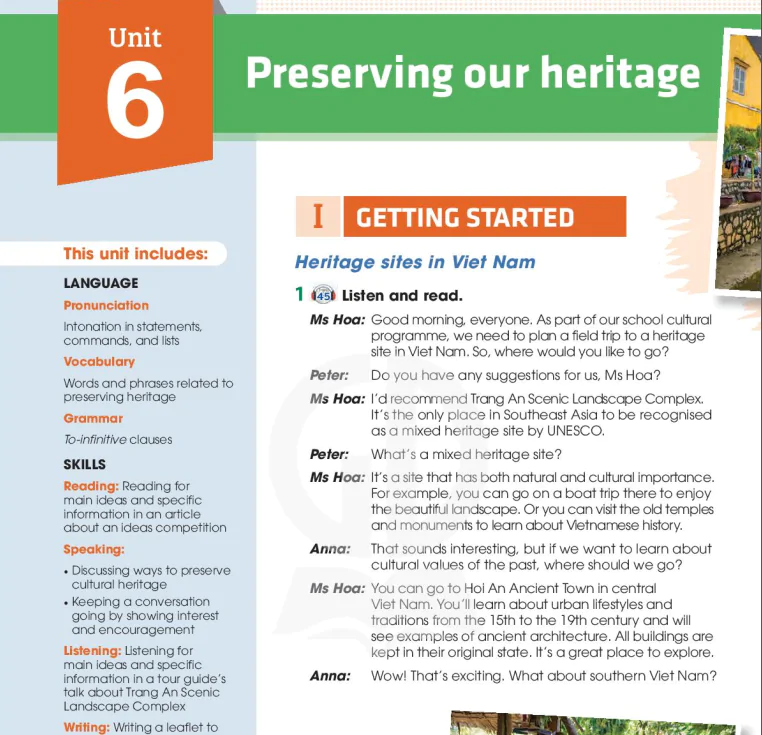


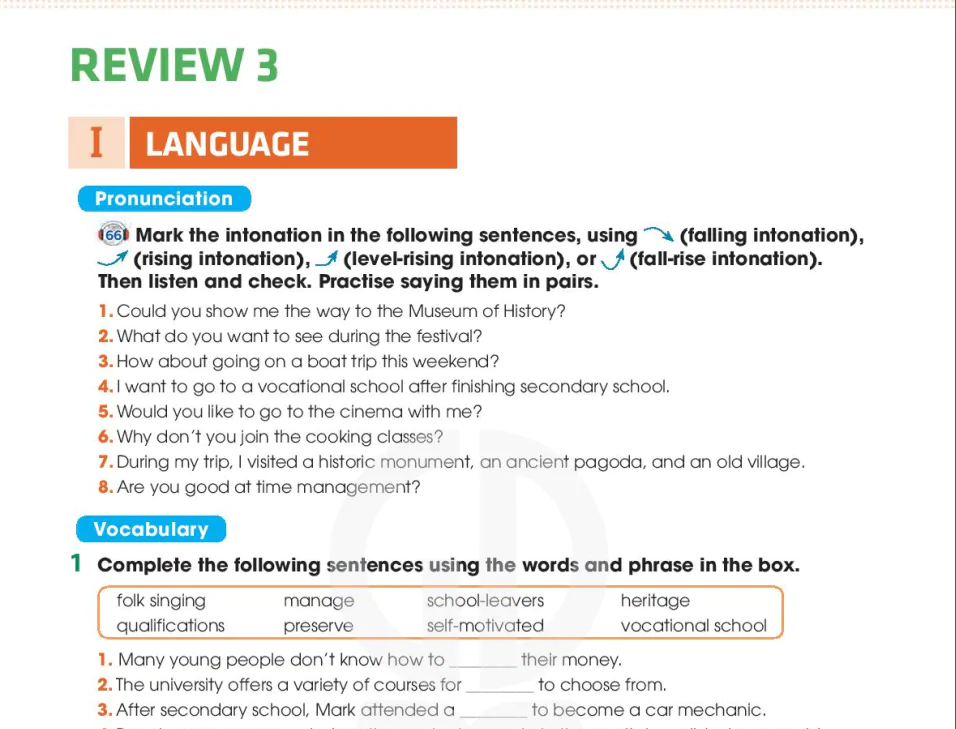
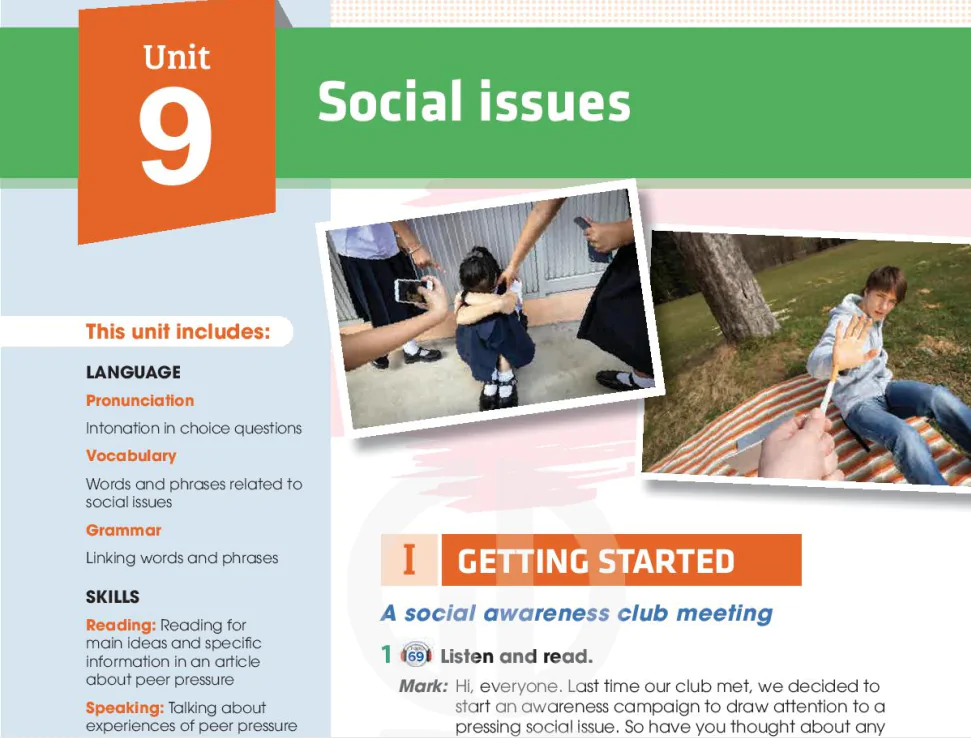
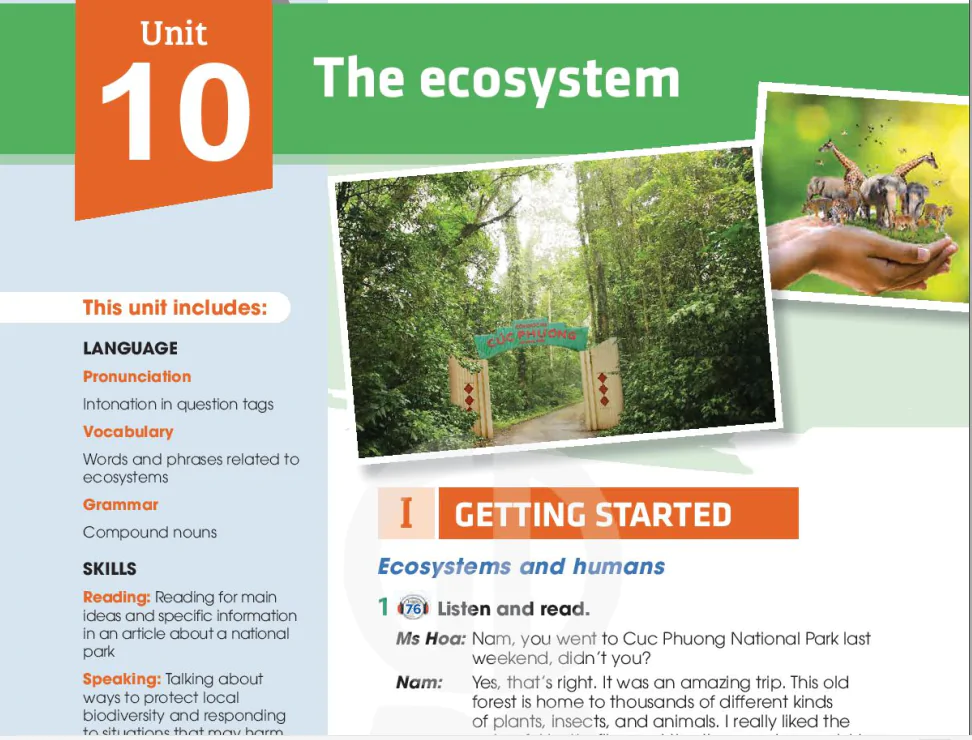
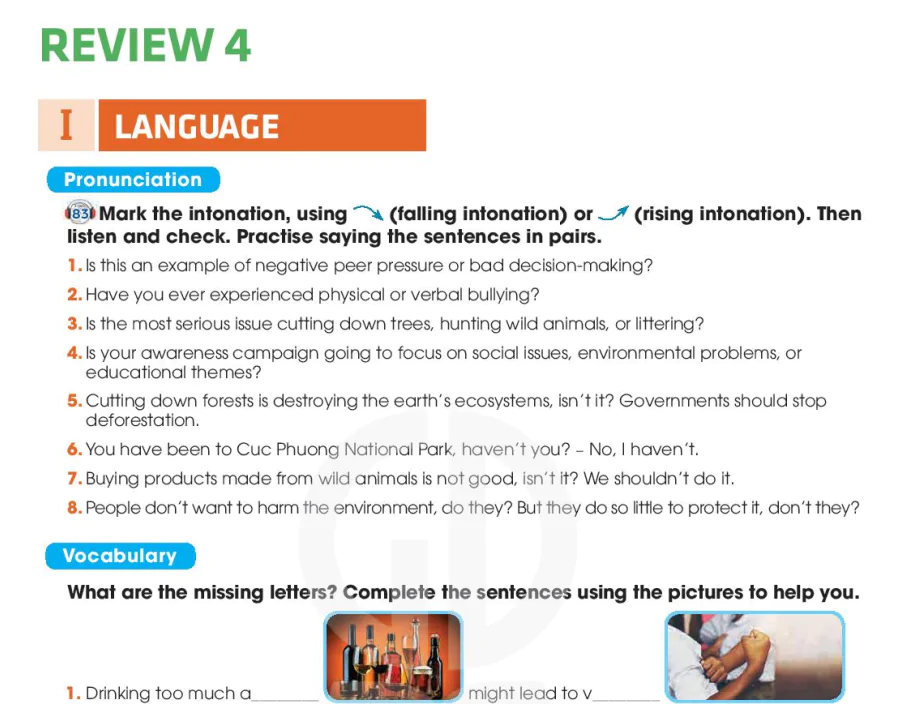
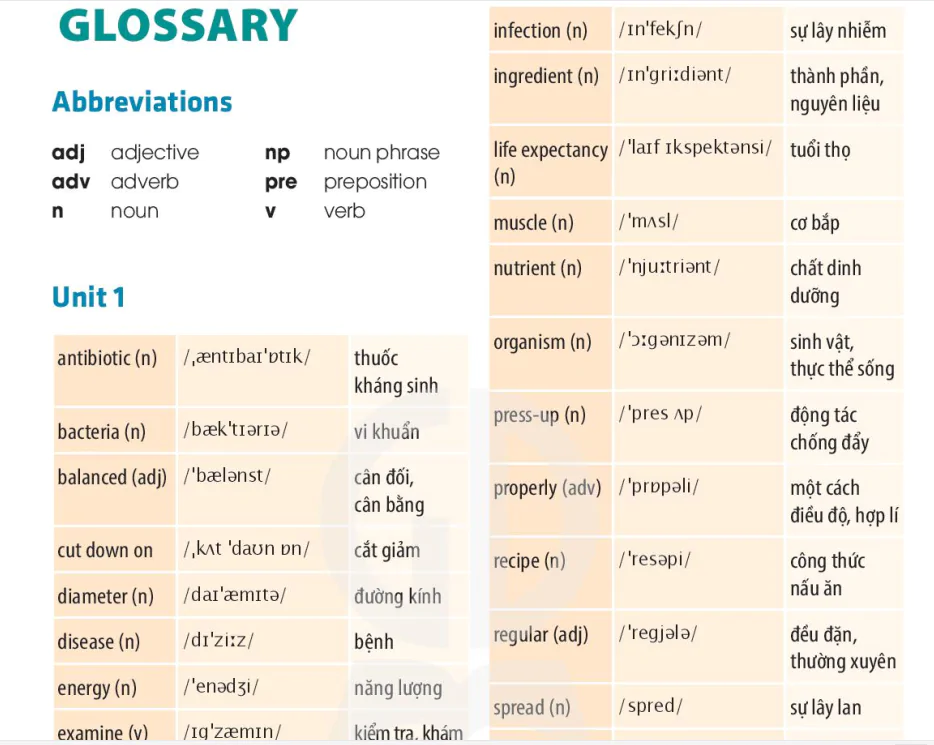
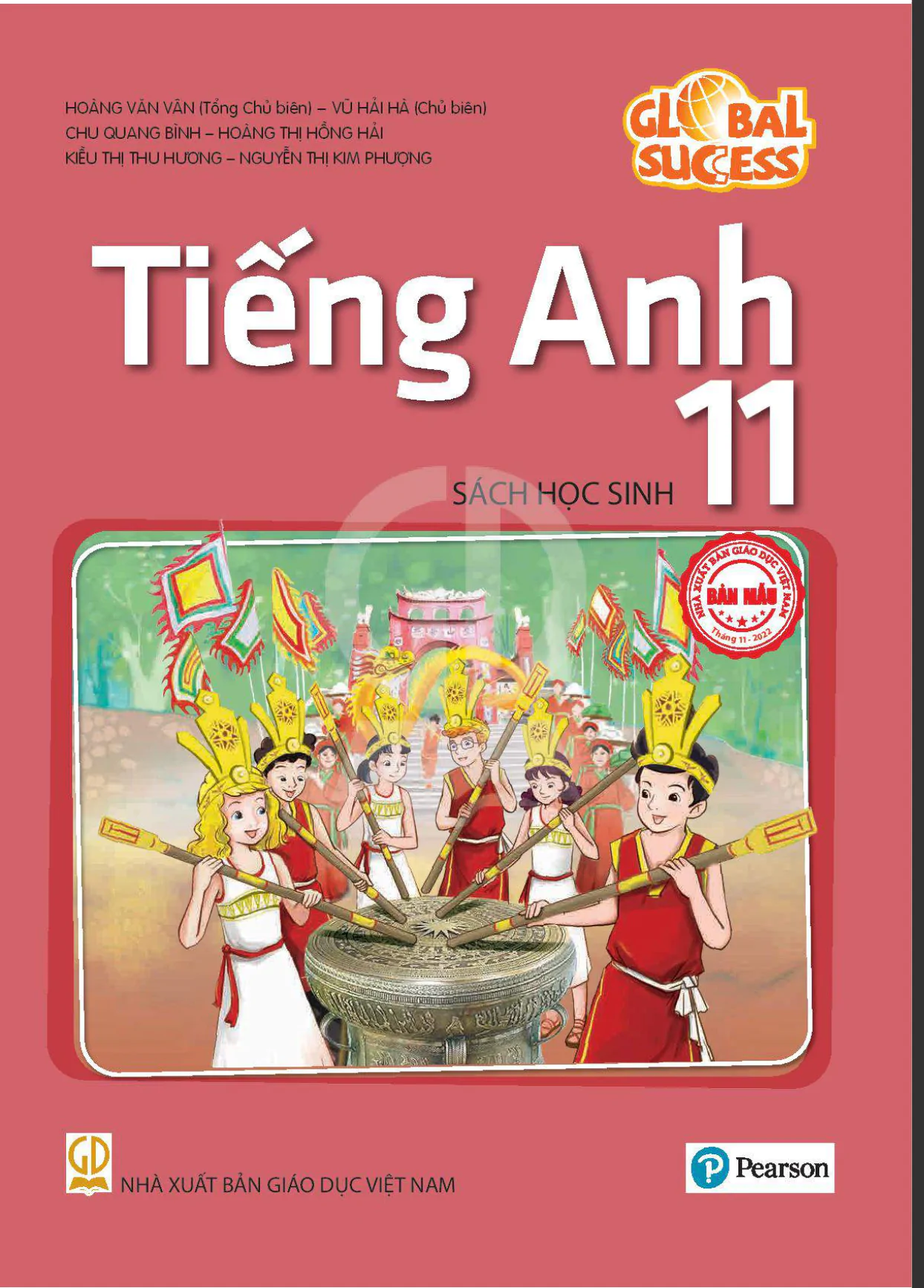

















Bình Luận
Để Lại Bình Luận Của Bạn